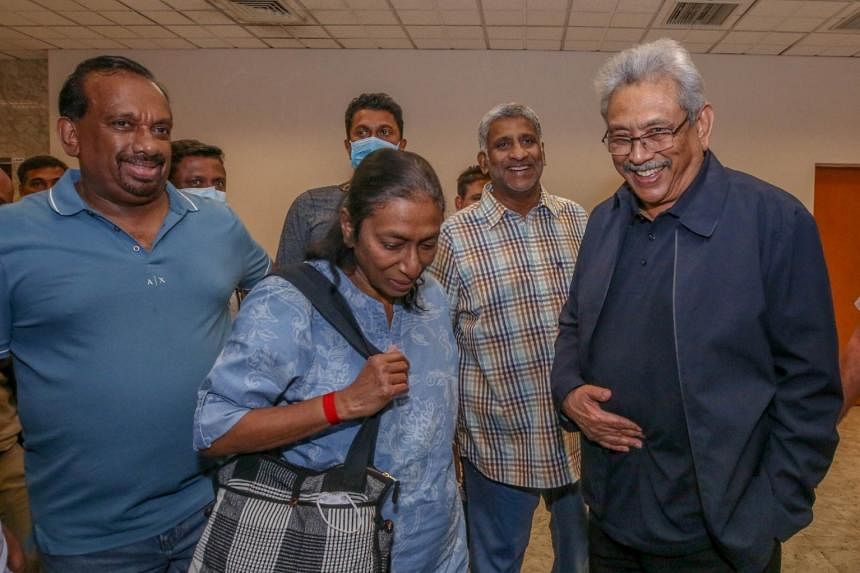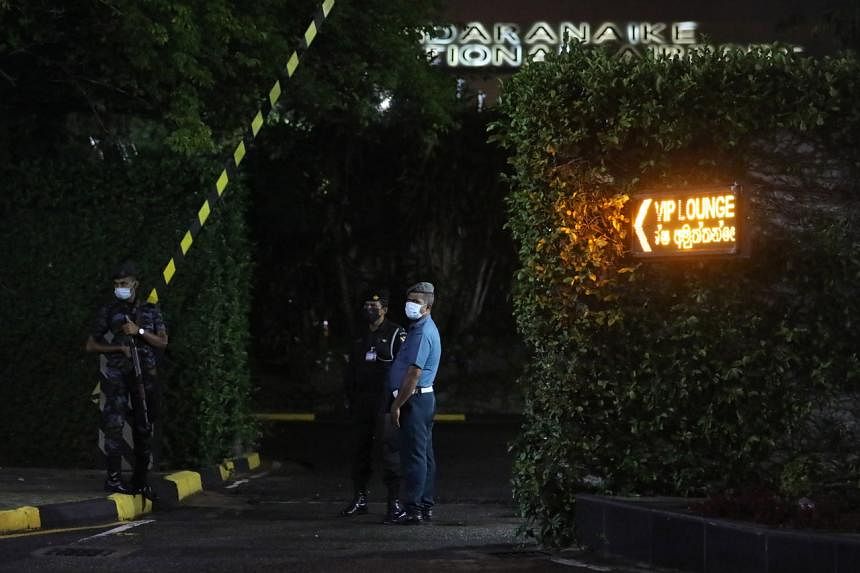COLOMBO - Former president Gotabaya Rajapaksa has returned to Sri Lanka, nearly two months after fleeing the island nation amid mass protests, but he faces calls for charges against him over policy missteps that led to the worst-ever economic crisis.
The 73-year-old came home late on Friday night local time under the protection of the new government of Mr Ranil Wickremesinghe.
A group of lawmakers and ministers welcomed him at the capital Colombo’s Bandaranaike International Airport with garlands and flower bouquets.
The government provided him a new official residence in central Colombo. Police officials and soldiers were stationed there for his security.
Although authorities expected a resurgence of the intense citizens’ protests that drove Mr Rajapaksa out, Sri Lankans reeling under severe food and fuel shortages and 65 per cent inflation seemed to have responded to the ousted leader’s return with a stunned silence.
There were no reports of protests on Saturday.
Ms Bhavani Fonseka, a senior researcher at the Centre for Policy Alternatives, said: “The general public seems to be surprised, appalled actually, that he returned so soon. Among those who were protesting for months, there is a sort of apprehension because of the repression under new President Ranil Wickremesinghe.”
Mr Rajapaksa left for Singapore via Maldives at the height of his unpopularity in July, when angry street protesters across Sri Lanka called for his resignation.
When demonstrators stormed his official residence in Colombo, Mr Rajapaksa took an air force plane out.
He resigned on July 14 from Singapore and moved to Thailand in August. He returned home on a commercial flight, ending his 52-day self-imposed exile.
When Mr Rajapaksa was abroad, Sri Lanka’s parliament elected then-acting president and six-time former prime minister Wickremesinghe as the new president.
Although he is a member of the United National Party, Mr Wickremesinghe had the backing of Sri Lanka Podujana Peramuna (SLPP), the party founded by Mr Rajapaksa and is the largest bloc in the 225-member parliament.
Opposition politicians have accused President Wickremesinghe of shielding the once-powerful Rajapaksa family.
In the past month, he has arrested dozens of key activists who led the nationwide protest movement against Mr Rajapaksa, his brothers and his government. Many activists are now in hiding.
“It’s harder to mobilise now, so we are re-strategising,” said a human rights activist who requested anonymity.
Mr Rajapaksa’s return suggests that President Wickremesinghe is confident about maintaining order after quelling protests. It is also a sign of the Rajapaksa family’s enduring influence in the nation.
It was on SLPP’s request that President Wickremesinghe facilitated Mr Rajapaksa’s return.
A few hours before he landed, videos of his brother Mahinda Rajapaksa presiding over a party meeting were released on social media. The former prime minister had been keeping a low profile since he resigned in May.
Sri Lanka’s highest court also allowed another brother, former finance minister Basil Rajapaksa, to travel overseas until Jan 15.
As the government announced that Mr Rajapaksa would be “accorded entitlements provided to a former president”, his critics said they are working on holding him accountable for policy missteps that led to the crisis.
Mr Rajapaksa’s resignation ended his presidential immunity.
Human rights activists said they would press for his arrest on multiple charges, including his alleged role in the 2009 assassination of prominent newspaper editor Lasantha Wickrematunge and war crimes that led to the deaths of Tamil civilians in 2009.
He also faces charges in a court in the US state of California over Mr Wickrematunge’s murder and the torture of Tamil prisoners.
“As a citizen of Sri Lanka, he can return any time, but the question is whether he will face any accountability for his role in the crisis and the political violence he is accused of. It is a test for Sri Lanka, we are at crossroads again,” said Ms Fonseka.






